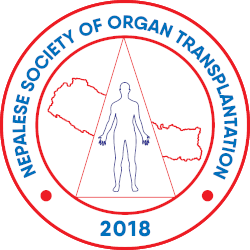Challenges in Setting up Transplant Program in Nepal
Abstract
Data reveals that every year 3000 Nepalese suffer from kidney failure and unfortunately, 90% of them die within the following few months. Similarly, the incidence of liver failure is 1000.With the increase in the events of organ failure, transplantation is growing as a popular modality for the treatment of organ failure. Currently, Nepal conducts 200-250 kidney transplants annually and has also instigated liver transplantation .However, initiating transplant program in Nepal- a country, where there was a double burden of communicable and non-communicable diseases was not a facile task.
Nepal started its journey of solid organ transplantation in 2008. There were two hospitals (TUTH & Bir hospital) providing the service but were insufficient to meet the existing demands. The physical and human resources were scarce and the two centers available were centralized .Besides, as the old Transplant Act allowed organ donation only from living donors that were close to relatives, scarcity of donors for transplantation and resulting organ trafficking and gender biasness were other important issues. There was no laboratory for the histocompatibility testing, requiring samples to be sent to neighboring countries for the test .Amid all these, slowly and steadily Nepal was trying its best to gain grip over transplantation.To meet the high demand, government established Shahid Dharmabhakta National Transplant Center at Bhaktapur to dedicate a center solely for strengthening organ donation and transplantation in the nation but making people build trust upon this newly found hospital and getting specialist doctors travel to Bhaktapur were other challenges .Amendment in the old transplant act of Nepal in 2016, required a lot of time and efforts. Making the stakeholders understand the importance of required changes in itself was a strenuous task.
Nevertheless, with all these efforts have shown colors and we are now able to increase the number of kidney transplants remarkably and look forward to regularizing liver transplants and brain dead donor organ transplants very shortly. Decentralization of transplant centers is another important aspect that needs attention and proper planning .This calls for coordinated efforts, increase in infrastructures and human resource training in this sophisticated orbit of medical science.

NESOT was established on 22 November 2018 by a group of people working directly or indirectly in the area of organ donation and transplantation.
Email: info@nesot.org.np
Mobile: +977 9866429631
Information
Connect